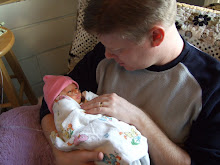I'm back from vacation and it was great. We drove 3000 miles and saw some of the most beautiful sites anywhere in the world. On top of that, I got to wake up everyday and spend it with my wife and kids which is always a treat. Here's what happened: Kansas driving, Colorado Springs, Garden of the Gods, Royal Gorge, boring drive to Albuquerque, Painted Desert, Petrified Forest, Meteor Crater, on to Phoenix to see my dad and stepmom (and various cats and dogs), swimming, dinner with aunt and uncle, golf with my wife (shot a 83!), the Phoenix zoo, Rainforest Cafe, naps, more golf (only a 96 this time), train park, Scottsdale shopping, PF Changs, more swimming, family dinner, Sedona, ice cream with Kelly Ripa and family (kind of), Grand Canyon, and then the very long drive home. I loved all of it.
Now that I'm back, we're moving on to Acts 17 - Thessolonica, Berea and Athens.
Paul's Entrance Strategy:
It's the same as before - in all three places Paul starts at the synagogue. Verse 2 even explicitly recognizes that this is a pattern. In Athens he also tries out going to the places of philosophical and/or religious conversation.
Gospel Presentation:
This is my favorite part of the chapter. We get a glimpse of how Paul shares the Gospel in two different settings - first, in a synagogue in Thessolonica, and second, in a meeting of philosophers in Athens. We can learn a lot from how Paul approaches each situation. In both cases he uses the religious background of his audience to share the Gospel. In the synagogue he 'reasons with them from the scriptures, explaining and proving that the Christ had to suffer and rise from the dead.' With the philosophers, he does not use scripture. He instead starts with their religious experience and builds off of it. He talks about their altar, and their poetry. He begins the Gospel with God and creation, not with Jesus. He gets to Jesus in the end, but as he has done in previous chapters, he just mentions Him and His resurrection then waits for them to ask for more. In both cases his message is very God centered and not people centered. He does not appeal to selfish, personal, individual needs.
This is so much different than what many in the church demonstrate today. There is no 'altar call'. There is no 'sinner's prayer' there is no promise of individual prosperity. We see that the way we share about Jesus with an Atheist, a Buddhist, a Hindu, a Muslim, a Chinese person, an Indian person, a European person should be DIFFERENT. And sometimes it may be best not to quote scripture (gasp!).
Leadership Development:
Silas and Timothy are able to stay in Berea and carry on the work on their own. Paul is clearly investing into these two men.
Out of his control:
Persecution is everywhere. This is maybe the dominant theme in Acts so far - that persecution comes and mostly sparks expansion rather than hinders it.
Results:
New leaders gain experience and begin to do some things on their own.
There are new believers left in every location.
Thursday, June 25, 2009
Subscribe to:
Post Comments (Atom)





No comments:
Post a Comment